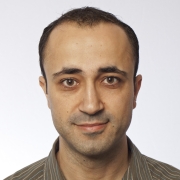Warwick Humanitarian Engineering Centre: Creating shared value

Georgia Kremmyda

Volkan Degirmenci
This project focuses on the development of a Warwick Humanitarian Engineering Centre (WHEC) which will promote appropriate, sustainable, and holistic solutions to humanitarian engineering challenges by integrating science into a broader practical scheme. Humanitarian engineering is the use of science to improve the living standards of marginalized, discriminated, underserved, or disaster/war hit groups of people globally.
WHEC’s vision is to be a dynamic, interdisciplinary and enterprising centre approaching global humanitarian engineering challenges. WHEC will enable students and professionals to find or create their place in the world by providing a life-changing education with a global perspective. WHEC will adopt approaches that foster and support an inclusive educational environment: one that’s accessible to people from all backgrounds.
WHEC will be the first and only Humanitarian Engineering Centre in the UK and in the world providing problem-based education, training and research offered by a diversity of members from several distinctive academic disciplines (engineering, social sciences natural sciences,health and medical sciences, business) and partners from industry and non-governmental organisations. Training for one who participates in humanitarian engineering incorporates history, politics, economics, sociology, as well as rigorous engineering basics. Humanitarian engineering is a new, emerging field which requires input from a variety of disciplines. The existing education programmes, especially in the UK, are discipline specific, running under certain departments without providing inclusiveness, a true sense of interdisciplinarity, innovation and diversity.
WHEC’s philosophy is that learning is taken out of the realm of academic theory and put in the context of real-world applications. Students and professionals with diverse backgrounds will tackle actual societal challenges in a manner very similar to the global teams assembled by today’s leading workgroups. This holistic and hands-on approach will enable them to learn the reality of what it’s like to work within social, economic, legal, ethical and other constraints, and how innovative thinking is required to solve real-world problems. In current times, where various humanitarian crises are occurring, - e.g. war refugee crisss, natural disasters, record population growth - the topic is timely and emerging. There is a need to introduce the global dimension of engineering education; a new paradigm can only be achieved by many stakeholders working together and tackling engineering, economic, as well as social and environmental problems.
In the present project a new education programme will be developed on humanitarian engineering, which will be considered as the first education activity to run under WHEC once established. The project will explore skills, knowledge and other attributes that characterise a professional individual working efficiently, effectively and ethically in a challenging humanitarian engineering context.
Dr Georgia Kremmyda is the Civil Engineering Degree Leader, responsible for the delivery and management of teaching at undergraduate and MSc levels in Civil Engineering within a unified School of Engineering, providing also leadership in curriculum development, administration, liaison with industry and other activities.
Dr Volkan Degirmenci is an Assistant Professor in Chemical Engineering in the School of Engineering. His teaching and research interests are in the field of catalysis, bio-renewables and sustainable production of energy and chemicals.
Related project
Paving the way towards a Warwick Humanitarian Engineering Centre
